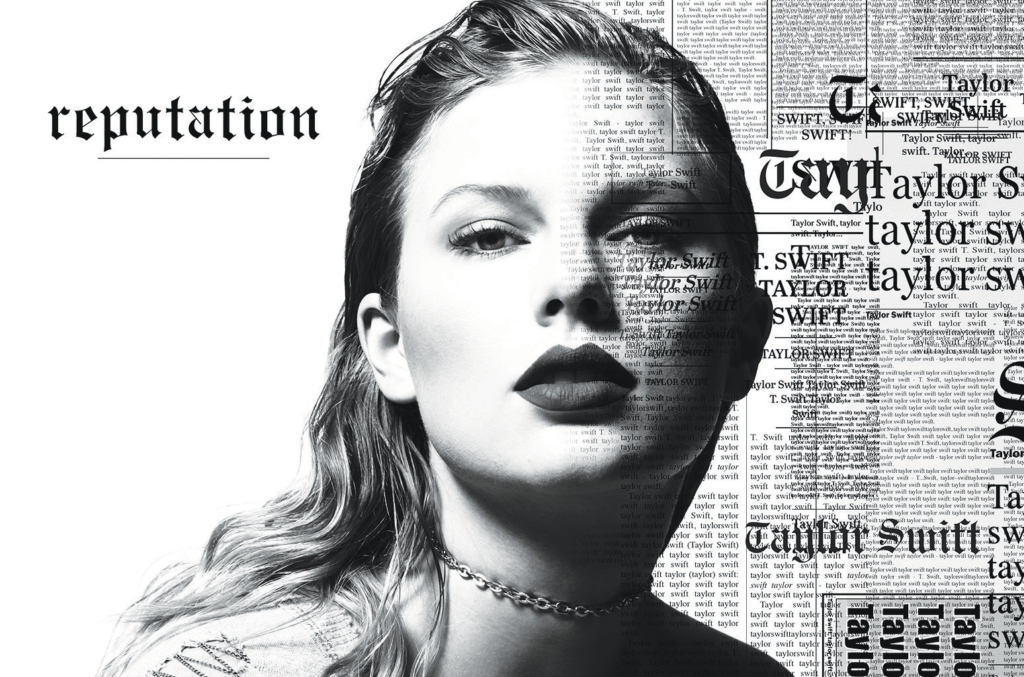 By Joseph Coffey-Slattery
By Joseph Coffey-Slattery
After a three-year hiatus that saw only one new single – 2016’s Zayn Malik-assisted “I Don’t Wanna Live Forever,” Taylor Swift returned to the public consciousness with the release of her sixth LP, “Reputation,” on Nov. 10.
As if she never left, Swift commands a following that is not dissimilar to the R&B/pop/whatever-suits-her-fancy phenomenon that is Beyoncé; both have loyal fans that will talk about them even when they haven’t put out anything new in some time. The general public is forever entranced by Swift and her escapades, romantic and otherwise, so it should come as no surprise that her divulging 15 new tracks on an unassuming Friday in November has sent diehards and the music community into a frenzy.
After sharing the track-list on Instagram two days before the album’s release, many became intrigued by the second entry in the album, “End Game”, which comes with assistance from Swift-bestie Ed Sheeran and Hip-Hop mainstay Future. Yet this song, while perfectly fine in execution and production, can be largely ignored. If one has learned anything from the career of Swift, features do not make her albums. She shines best when she is on her own, and her shine is so bright it may be too potent for some to handle.
So what is “Reputation”? It’s a new production style that listeners will not necessarily be used to hearing from Swift, with Max Martin, Ali Payami and Jack Antonoff – among others – creating a unique blend of hip-hop, pop, dancehall and various other genres woven in. The album comes off as something of a quilt of genres, a project that refuses to be pinned against a wall and made into any one thing. While the Kendrick Lamar-featured “Bad Blood” in 2016 did hint at this shift in focus, the concept is fully realized on “Reputation,” with thunderous basslines and a breathy echo permeating throughout.
Lyrically the album is more or less what we’ve come to expect, which will no doubt be the focus of many critics who ward off Swift and her legitimacy as an artist like the plague. It is true that Swift remains focused on past and prospective lovers, exacting revenge on those who wronged her and seeking to control others.
What comes as something new is Swift gradually breaking out of the somewhat post-code Hollywood approach of using innuendo, instead of plainly stating what she actually means. On the fifth track, “Delicate,” Swift asks of her companion, “do the girls back home touch you like I do?” An affirmation of this point is dubious, and the “girls back home” couldn’t possibly touch him like she does, as they are effectively nobodies and she is the “somebody” who everyone wants to talk about.
Which brings us to the title, “Reputation,” a word that works its way into a surprising number of songs on the album and clearly seems to be a motif that is occupying the 27-year-old’s mind. She seems to be of the impression that people think they know who she is, a notion that she hopes to dispel, particularly when it comes to those with whom she finds herself romantically entangled.
It is a very tangible example of human emotion in very mainstream pop. People often operate under the assumption that they have a clear idea of someone’s character based on things they have heard. Yet, as anyone will attest, it is better if one finds out for oneself what is fact and what is fiction. Swift effectively leads this charge, kicking up dust in the face of her former country roots. On to bigger, better and more personal things. Emotions are no longer toys, but tools and your reputation can only be as good as your own imagination.


